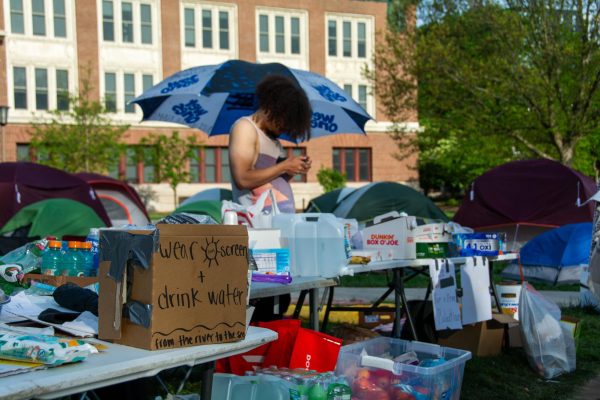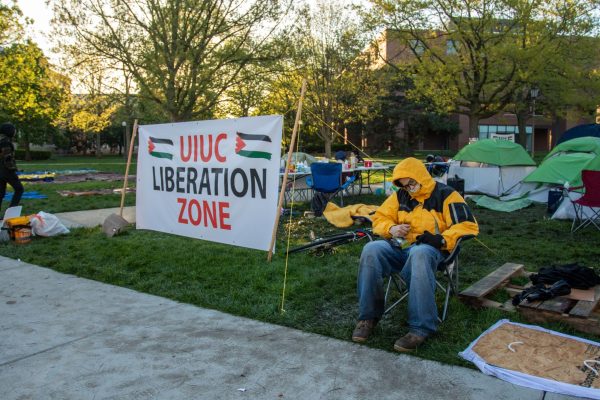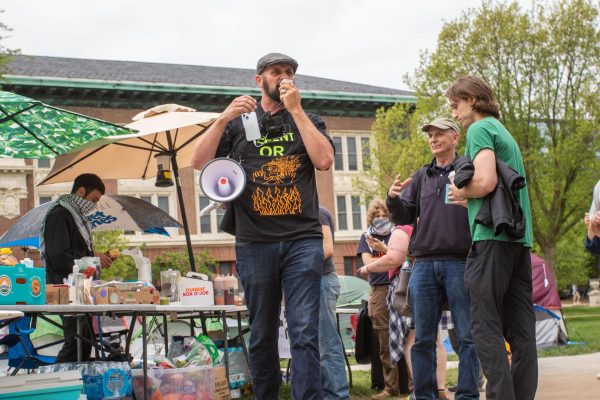Finding the right balance in social advocacy
October 13, 2015
As the world is pushing itself into a new era of acceptance, social movements are gaining more footing than ever before, making a real name in the media and refusing to be ignored. One such movement is the “Justice or Else” campaign that began in D.C. this past Saturday, marking the 20th anniversary of the historic Million-Man March. The campaign took from recent points of controversy in the media, such as police brutality and racism in the legal system, and held one massive march in intense and unified protest. http://www.nytimes.com/2015/10/12/opinion/million-man-march-20-years-on.html?_r=0
Now, this event held tidbits of a wide variety of social issues in it, but its primary focus existed in empowering the black community — a focus that I feel like a lot of students on campus can get behind and support. We exist as one of the most diverse campuses in the nation, and that diversity often leads to a natural sense of inclusiveness.
All sorts of students are now out there supporting issues such as LGBTQ rights, feminism, and campaigns for racial justice. With the rise of this advocacy, it’s crucial to understand the priveleged parties’ places in social issues. Those who are not directly affected by the discriminatory system need to know the most effective way to show their support for such movements without overstepping their boundaries and keeping the focus on the right people.
As a straight white, cisgender, middle-class male, I’ve knowingly lived my life as one massive walking privilege; I exist as the majority party in all social issues, and many times, upon my attempts to assist and become part of social movements such as feminism and the Black Lives Matter movement, I’ve encountered resistance from the respective oppressed parties.
Upon being told to “stay in my lane” and to “check my privilege,” I began a search for the white man’s place in racial issues, the straight man’s place in LGBTQ causes and situations of the like.
Get The Daily Illini in your inbox!
Promise Aziaka, an African-American sophomore in Engineering, says the level of acceptance of privileged individuals in social issues depends heavily on the size and momentum of the movement.
“Some issues that get less attention and need greater amounts of help, such as transgender issues, are more accepting of the resources and help that majority parties can give,” Aziaka said. “Other issues that seem to be gaining ground with a very direct message, like Black Lives Matter, won’t always take everybody; sometimes they only want their movements full of people directly affected by oppression.”
The sad truth is that the words and views of majority parties tend to mean more to the media and society than the voices of the oppressed, because prejudice exists, more than anything else, as a system.
This system has been built over centuries of social norms and discrimination, and now the voices of white people, straight people, men and other people of privelege, are the ones that society pays the most attention to. The best way for such privelaged individuals to utilize that inherent social advantage is in the name of progression and equality.
One such example is shown by the Human Rights Campaign in a brochure on being an effective straight ally for LGBTQ issues, saying that “Many civil rights movements were successful because people from nearly every part of society stood shoulder to shoulder in fighting bias.” http://www.hrc.org/resources/entry/straight-guide-to-lgbt-americans
So to all you straight, white, middle-class students all over campus: through my investigation, I’ve found the best way for majority parties like us to participate in modern-day civil rights movements is to constantly be conscious of those who are actually being oppressed.
Use your privilege to do as much good as possible, respectfully back off when those who are being directly affected ask you to do so, and most importantly, don’t make these movements about you. We need to be directing the social attention we receive towards those who need it most, not seeking it ourselves. Reverse racism is not a thing, and as much as this phrase annoyed me not even a year ago, it truly is important that we check our privilege.
Every type of person has a part they can play in bringing this campus, and the world in general, to a social equilibrium. So long as you have a sense of where you stand on the spectrum of social privilege, you can always do something to make a change.
Logan is a freshman in LAS.?
[email protected]Tweet: Columnist Logan Weeter says those with privilege need to learn how to show support for minority movements without overstepping. | linkFacebook: Columnist Logan Weeter says the most effective way privileged individuals can participate in minority movements is to “constantly be conscious of those who are actually being oppressed.”







